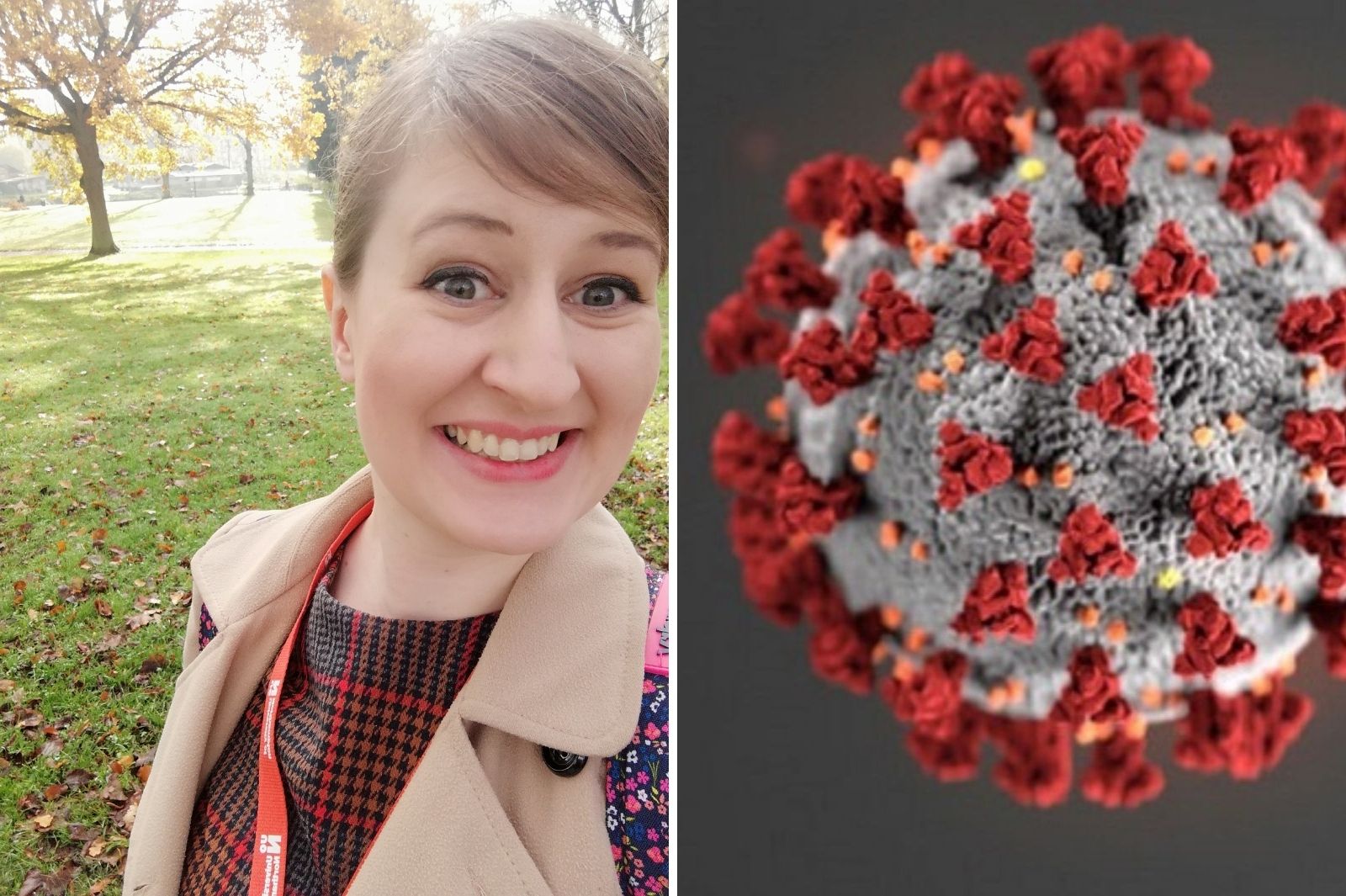The Covid iceberg: A Counselling student’s view
Date 11.03.2021

The pandemic has led to a tsunami of mental health needs, particularly during the periods of lockdown, meaning extra psychological support and signposting for many of us.
We caught up with Ellie Stokes, one of our MSc Counselling Children and Young People students, about her role as an Outreach Bereavement Counsellor. She talks about what she has seen, why she feels this is just the top of the Covid iceberg and why the UON degree has stood her in good stead to deliver important and much needed help.
What does your counselling role involve?
Currently, I am out on clinical placement as an Outreach Bereavement Counsellor, working in partnership with the NHS. As the title suggests, I work predominantly with bereavement and loss in children and young people.
However, what people often don’t realise is how much of bereavement is just the tip of the iceberg and how much other issues can come to the surface once counselling begins. Other issues that I have been working with include anxiety, family conflicts, body/self-esteem issues and emotional dysregulation – all of which, of course, have been amplified by the pandemic.
Are you seeing people needing bereavement counselling specifically in regards to Covid?
Due to high waiting lists and unprecedented demand for counselling services, many bereavement cases relating to the pandemic are unfortunately yet to filter down to us. It is one of the difficult parts of my role when I think of how many people out there need our help and expertise.
As counsellors though, we are taught to focus on what we can do and concentrate our efforts on helping those that we can. Whilst loss through Covid is not featuring in cases at the moment, I think it will be something that will feature more heavily in my caseload in the coming months and years.
Why do you think your counselling role has been helpful to people?
I think particularly at this moment in time, people have been left feeling so lost and isolated from the impact of the pandemic, especially people who have been bereaved. As counsellors, it is never our job to ‘fix’ people, but to sit with their pain and help them feel empowered to work through their struggles in a way that makes them feel as though they can be happy again.
I honestly believe that our work provides hope for people (especially children and young people) and gives them reassurance that things will get better, even if at this moment in time things might seem difficult.
Going on that journey with a client can be an incredibly emotional rollercoaster but the true satisfaction comes when you reach the other side with them and you can see the amazing transformation that they have been on with you.
How has your course at UON and what you’ve been learning helped you with your counselling role?
The structure of the course allows us to acquire both hands-on practical skills and theoretical knowledge to underpin our practice.
Our lecturers provide us with creative and adaptable strategies and draw on their own experiences as well. I have especially enjoyed the ecotherapy and creative lectures, which have provided us with lots of good ideas for working with our clients, using lots of different mediums (including the outdoors!).
We are taught a broad spectrum of different approaches and eventually you find your niche and what feels right for you. I personally was always interested in bereavement and loss and then I learn about person centred therapy; which I got on really well with. I think there is something for everyone on this course and it has been so nice to see how all of my peers have pursued very different routes.
What’s your overall impression of the course at UON? Would you encourage others to take it?
When I first started on the course, the thought of doing two and a half years part time study felt like a daunting commitment. But the time I’ve spent at UON has flown by and I can barely believe that I am almost reaching the end of my training.
My journey as a trainee counsellor has been a rocky one with coronavirus thrown into the mix but it has also given me some valuable experiences, which have helped to shape me as I progress through my training. For one, I have been able to learn the skills to counsel face-to-face and virtually (over the telephone); which I know will stand me in good stead when I apply for work. For another, I have gained hands-on clinical placement experience in the sector, working with my own clientele, and making a real difference in my community.
If you are considering a career in counselling, this is an excellent route to take and will set you up with everything you need to work therapeutically with children and young people.
Where do you see yourself in the future?
Once I have graduated, I would like to work with bereaved children and young people, either in the public sector (school counselling) or with the voluntary sector (charitable organisations). I have also thought about the possibility of a portfolio career.
For me, this would mean engaging with a patchwork of different roles throughout my working week, ranging from client work to research. No two days are the same in a portfolio career, making it especially rewarding and varied. Once I gain more experience, I would like to work with traumatic bereavement and loss – possibly with a view of going into private practice, with my own clientele.